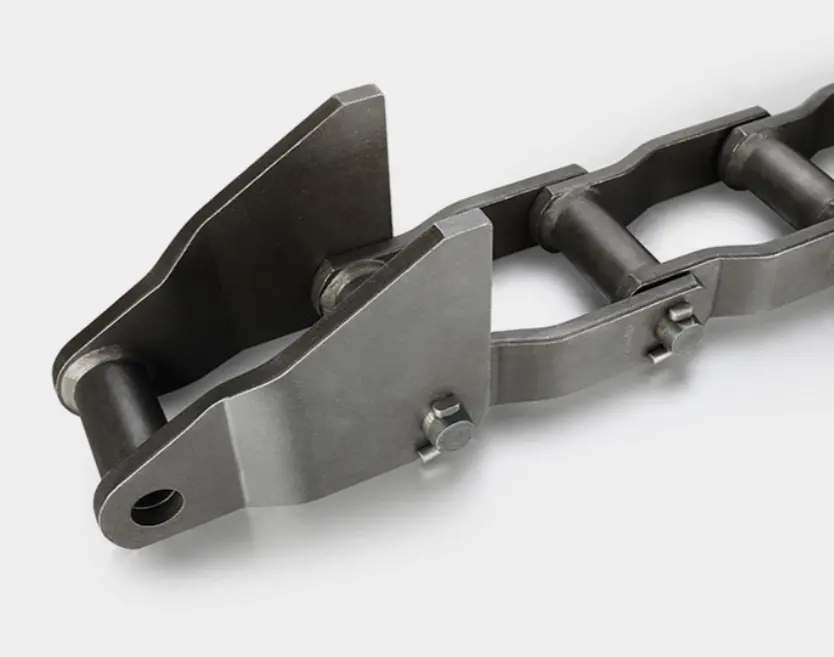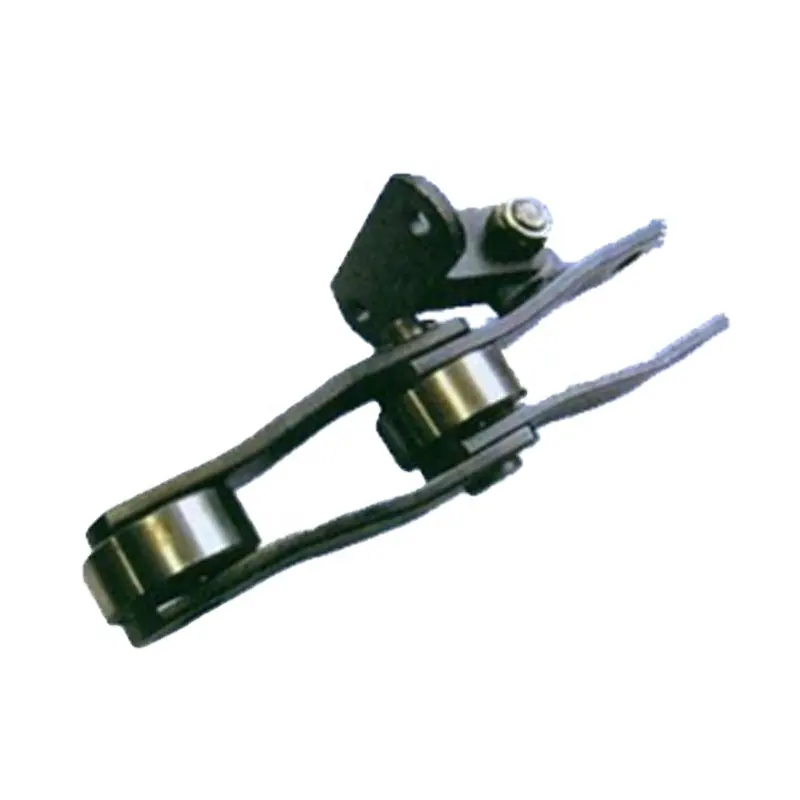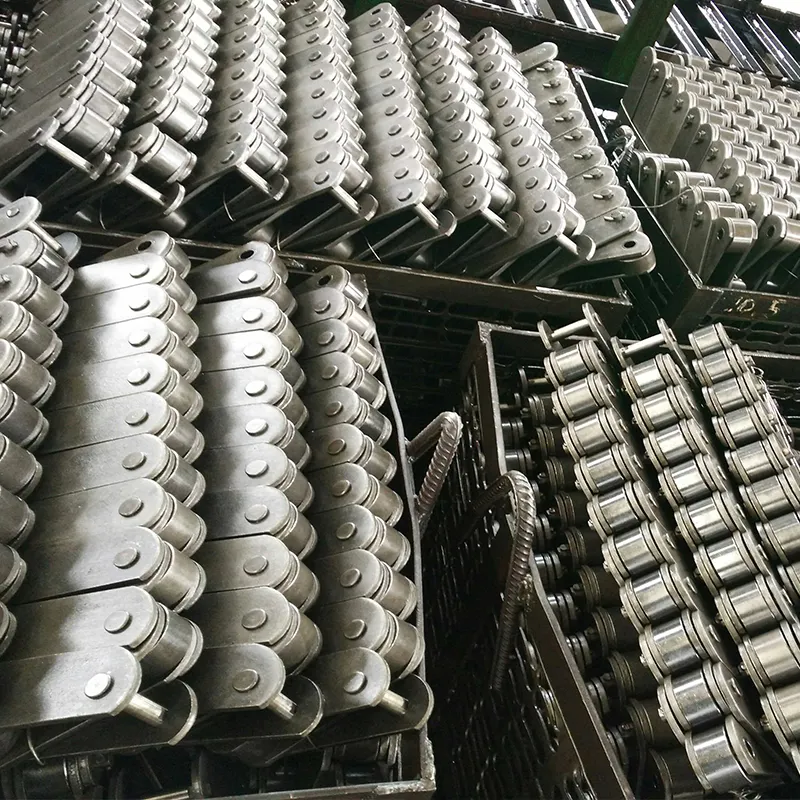Product Description
What are the benefits of using a stainless steel mill chain in specific environments?
Stainless steel mill chains offer several advantages in specific environments due to their unique properties and characteristics. These chains are made from corrosion-resistant stainless steel, which makes them suitable for various challenging and demanding applications. Here are the benefits of using stainless steel mill chains:
1. Corrosion Resistance: Stainless steel mill chains have excellent corrosion resistance, making them ideal for use in environments where exposure to moisture, chemicals, and harsh weather conditions is common. They can withstand rust and corrosion, ensuring a longer service life compared to standard carbon steel chains.
2. High Strength: Stainless steel mill chains retain high tensile strength even in challenging conditions, making them suitable for heavy-duty and high-load applications. Their strength ensures reliable and consistent performance in demanding industrial environments.
3. Temperature Resistance: These chains can withstand a wide range of temperatures, making them suitable for applications where extreme heat or cold may be present. This makes them suitable for use in industries such as food processing, chemicals, and automotive manufacturing.
4. Hygienic and Clean: In industries where hygiene is crucial, such as food processing and pharmaceuticals, stainless steel mill chains are preferred because they are non-porous and easy to clean. They are resistant to contamination and can be sanitized to meet strict hygiene standards.
5. Low Maintenance: Stainless steel mill chains require minimal maintenance due to their corrosion resistance and durability. This reduces downtime and maintenance costs, leading to improved overall operational efficiency.
6. Longevity: Stainless steel mill chains have a longer service life compared to traditional carbon steel chains, even in harsh environments. Their ability to resist corrosion and wear ensures extended operational longevity, reducing the frequency of chain replacement.
7. Aesthetic Appeal: In certain applications and environments, the aesthetic appearance of stainless steel is desirable. The clean and polished finish of stainless steel mill chains makes them visually appealing and suitable for industries where appearance matters.
8. Chemical Resistance: Stainless steel mill chains are resistant to various chemicals and acids, making them suitable for use in industries involving chemical processing, paper manufacturing, and more.
Overall, the benefits of using stainless steel mill chains in specific environments include corrosion resistance, high strength, temperature resistance, hygiene, low maintenance, longevity, aesthetic appeal, and chemical resistance. These advantages make them a preferred choice in industries where durability, reliability, and performance in challenging conditions are essential.
Can mill chains be used in petrochemical processing and refineries?
Yes, mill chains can be used in petrochemical processing and refineries, but the selection of the appropriate chain type is crucial to ensure optimal performance and safety in these demanding environments. In petrochemical processing and refineries, mill chains are often employed in various applications, including material handling, conveying, and elevating tasks.
The key considerations when using mill chains in petrochemical processing and refineries include:
- Corrosion Resistance: Petrochemical environments can be highly corrosive due to exposure to chemicals and moisture. Therefore, selecting mill chains made from corrosion-resistant materials, such as stainless steel or plastic, is essential to prevent premature wear and failure.
- Temperature Resistance: Petrochemical processes often involve high temperatures, so it’s important to choose mill chains that can withstand the specific temperature range of the application without losing their structural integrity or mechanical properties.
- Chemical Compatibility: The mill chains must be chemically compatible with the substances being handled in the petrochemical processes. Compatibility ensures that the chains won’t react with the chemicals, preventing contamination or degradation.
- Load Capacity: Depending on the application, mill chains must be capable of handling the required loads and forces present in the petrochemical processing and refining operations.
- Reliability: In critical processes within petrochemical facilities, reliable mill chains are essential to ensure uninterrupted operation and prevent costly downtime.
- Safety: Safety is of utmost importance in petrochemical processing. Employing mill chains with proper safety features, such as overload protection and anti-jump guides, is vital to minimize the risk of accidents.
Regular maintenance and inspection of the mill chains are also necessary to ensure their continued performance and to detect any signs of wear or damage promptly. Overall, when chosen and used correctly, mill chains can effectively meet the demands of petrochemical processing and refineries, providing a durable and efficient solution for material handling and conveying needs.
How does a mill chain differ from other types of conveyor chains?
Mill chains, also known as industrial chains or conveyor chains, have several distinct features that set them apart from other types of conveyor chains. Here are some key differences:
1. Design and Construction: Mill chains are specifically designed for heavy-duty industrial applications, such as steel production, lumber handling, mining, and more. They are built with robust construction and larger link plates to handle heavy loads and resist wear and tear.
2. Attachment Type: Mill chains often come with various attachment options, such as extended pins, K attachments, or slotted attachments. These attachments allow the chain to engage with the conveyed materials and provide a secure and efficient method of transporting them.
3. Material: Mill chains are commonly made from high-quality materials, such as carbon steel or stainless steel. This choice of material ensures durability, resistance to corrosion, and the ability to withstand harsh operating conditions.
4. Application: While some other types of conveyor chains are suitable for lighter-duty applications, mill chains are specifically designed for heavy-duty and high-stress industrial applications. They are commonly used in industries like steel mills, lumber processing, mining, and other heavy industries.
5. Load Capacity: Due to their robust design and construction, mill chains have a higher load capacity compared to standard conveyor chains. This allows them to handle large and heavy materials in industrial settings.
6. Speed: Mill chains are typically used in applications where the conveying speed is slower compared to some other types of conveyor chains. The focus is on moving heavy materials with precision and control rather than achieving high conveying speeds.
Overall, mill chains are engineered for heavy-duty and demanding applications that require reliable and efficient material handling. They are a crucial component in various industrial processes, providing smooth and controlled movement of materials in challenging environments.
editor by CX 2024-04-25




